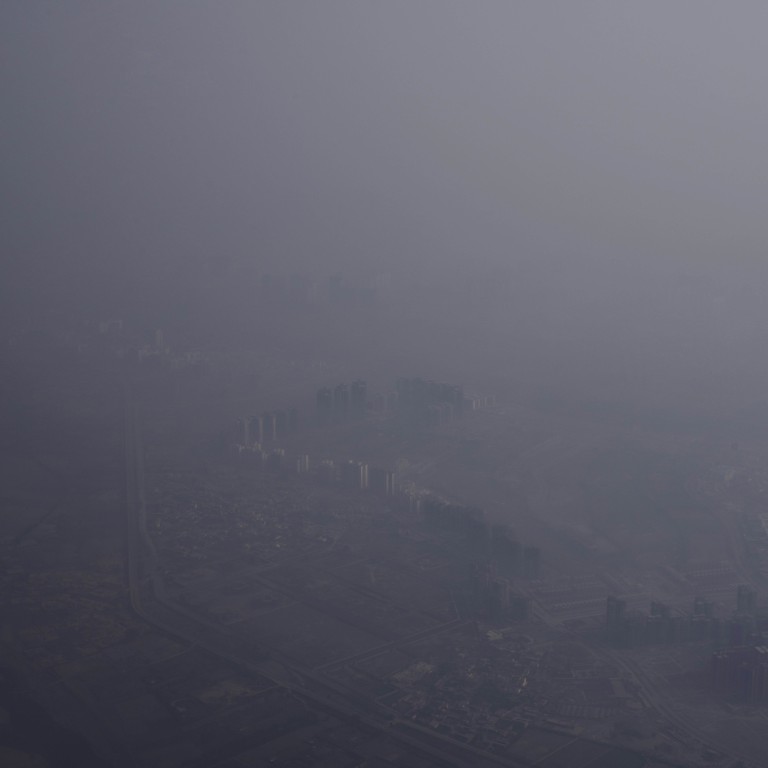
Beijing does not have the most polluted air in the world
For those of you familiar with Beijing's horrendous air pollution, it may come as a surprise to know that it is by no means the world's worst. That distinction went to Delhi. Indeed 13 of the top 20 cities in the world with the dirtiest air were to be found in India, three in Pakistan, and one in Iran, Qatar, Turkey, and Bangladesh. These findings were the result of a study, announced last week, of air quality in 1,600 cities by the World Health Organisation. The ranking is on the basis of annual average concentrations of PM2.5 particulates, which in Delhi were 153 micrograms (mg) per cubic metre.
The WHO says no PM2.5 levels are safe, though it regards annual average concentration of 10mg per cubic metre as a long-term guideline level beyond which people begin to suffer ill-effects. Beijing is ranked 77th with PM2.5 levels of 56, though this data appears to be old since the Beijing authorities said last month that PM2.5 particulates recorded a daily average of 89.5 mg per cubic metre in 2013. This would put Beijing 17th on the WHO rankings. Hong Kong is ranked 584th with PM2.5 levels of 21mg per cubic metre, though no year is given. This seems on the low side. Central, for example, averaged about 35 mg per cubic metre last year, which would put it at 288 on the list.
Following Delhi, the next ranked cities with the dirtiest air were Patna, Gwalior and Raipur, followed by Karachi. Singapore was ranked 755th with PM2.5 levels in 2011 of 17mg per cubic metre.
London was ranked at 836 with 16 mg per cubic metre and New York at 925 with 14mg per cubic metre. Sydney and Melbourne, with PM2.5 levels of 5mg per cubic metre, had the lowest for any sizeable cities.
Once again Australia is overall the most expensive major economy while the US is generally the cheapest, according to Deutsche Bank's third edition of its annual survey of global prices. The survey shows that Brazil is relatively expensive for a developing economy and while China is cheap for car rentals, for branded goods like Levi's jeans, Adidas shoes and iPhones it is more expensive than the US. Singapore was the most expensive place to buy a car, while Hong Kong the most expensive to rent an office.
Deutsche revised their three indices, The Weekend Gateway Index, The Cheap Date Index, and the Graduate Recruitment Index. Thus Kuala Lumpur and Mumbai were the cheapest places for a weekend holiday while Sydney was the most expensive. Apparently it is cheaper to spend a weekend in Tokyo than Sao Paulo or Moscow. London was the most expensive place for a date. A five star hotel in Moscow was an eye-popping 206 per cent more expensive than one in New York, while Hong Kong was 68 per cent of the cost, Beijing 83 per cent and Singapore 98 per cent. The price of a pint of beer in a neighbourhood pub was the most expensive in Paris at US$8.11, 116 per cent the price in New York, followed by Hong Kong at US$7.22, 103 per cent compared to New York.
Mumbai was the lowest on the cheap date index at US$23.04 while Berlin was the highest at US$104.80.
An interesting study of job aspirations by 18-year-olds in Britain shows that banking has lost its allure. The survey of the parents of 18-year-olds which appeared in the recently found that the majority wanted to work in IT (34 per cent) followed by engineering (18 per cent). Next came police work, health care, architecture, law, hospitality, social work and pharmaceuticals. Only 9 per cent wanted to work in finance, which was only slightly more than the construction industry.
You would have thought former secretary of the treasury Tim Geithner would have preferred to keep quiet about his time during the global financial crisis. Not so, and we have yet another book entitled: . Barely off the press, it has drawn criticism from Neil Barofsky, the former special prosecutor for the Troubled Assets Relief Programme, and George Bush's economic adviser, Glenn Hubbard, dean of the Columbia Business School. Both men, according to the website Business Insider, have accused Geithner of what Barofsky called "factual mischaracterisation" while Hubbard accused Geithner of out and out lying.
Have you got any stories that Lai See should know about? E-mail them to [email protected]


